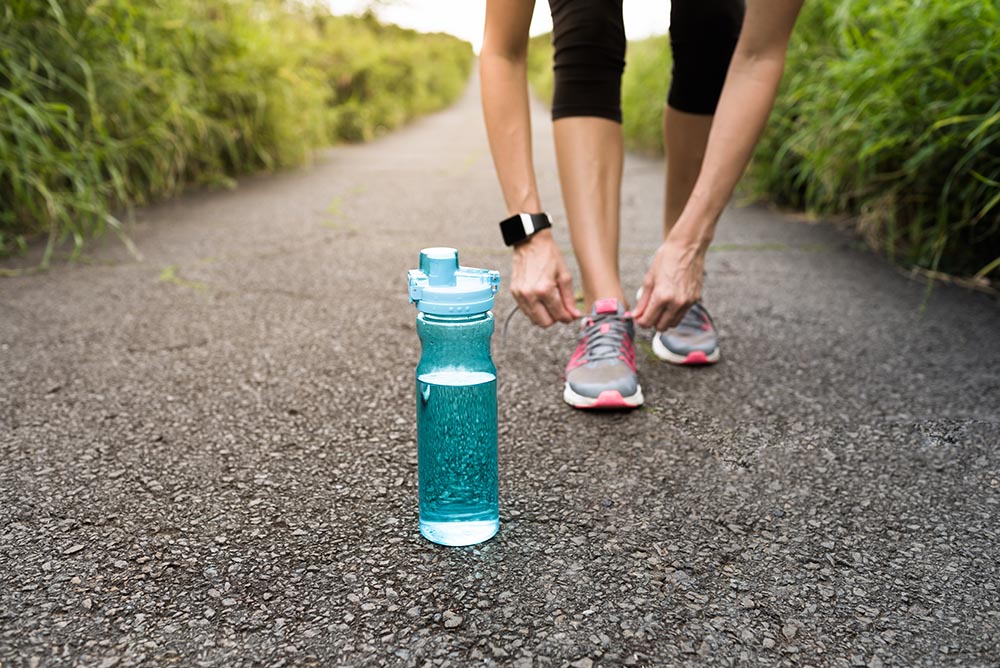
Natural Sources of Electrolytes

You've heard all about the importance of staying hydrated while you work out, but how exactly do electrolytes factor in? Why do we lose them and how do we replenish our stock? Read ahead to learn about electrolytes and find out where you can find some natural sources.
Types of Electrolytes
Electrolytes have names, and you might be familiar with several of them. Here are a few examples of the electrolytes that help to keep your body balanced:
- Potassium
- Sodium
- Calcium
- Magnesium
- Phosphate
- Chloride
Why You Need Electrolytes (and What Happens Without Them)
Electrolytes play an important role in the body, and athletes aren't the only ones who need them. Proper electrolyte imbalance prevents dehydration as well as a host of symptoms that range from uncomfortable to severe.
Electrolytes help:
- Rebuild new tissue
- Balance blood pH level
- Boost communication between the heart, nerve cells, and muscles
Having low electrolytes isn't exactly the same thing as being dehydrated, but the two do go hand-in-hand; the same goes for their symptoms. These are some of the symptoms you might experience if you have low electrolytes or suffer from dehydration:
- Thirst or dry mouth
- Irregular heartbeat
- Fatigue, headache, or numbness
- Seizures
- Muscle problems (cramps, weakness, spasms)
- Anxiety
- Change in blood pressure
Risk Factors for Low Electrolytes
Keeping the proper electrolyte balance is one of the many components of a healthy lifestyle. Unfortunately, there are a few factors that can throw your electrolytes out of balance and cause these negative symptoms.
- Kidney malfunction: Electrolyte imbalance doesn't just mean low electrolytes. People who have kidney problems may have too much potassium, which is also harmful to their electrolytic balance.
- Bulimia: If you have an eating disorder like bulimia, controlling your electrolytes can be much more difficult due to the purging of fluids. Talk to your doctor to get to the root of the problem, and do your best to replace the lost electrolytes while you work to overcome the condition.
- Medication side-effects: Laxatives and diuretics cause you to go to the bathroom more frequently, so you lose more water through bowel movements and urination. This leads to dehydration, which expels more electrolytes.
This isn't an exhaustive list, so pay attention to your body for signs you're running low on electrolytes.
Natural Sources of Electrolytes
Many common foods and drinks are natural sources of electrolytes, and a handful of them are probably already in your diet.
- Fruits: Bananas, watermelon, avocados, strawberries
- Vegetables: Leafy greens like spinach, kale, and arugula
- Dairy: Milk, yogurt, and buttermilk
- Fish: Tuna and salmon
- Meat: Turkey and chicken
- Nuts: Almonds and peanuts (especially peanut butter)
- Drinks: Coconut water, orange juice, and sports drinks (but watch out for sugar in sports drinks)
A well-balanced diet should include a few of these groups, but is one natural source of electrolytes better than the others? Depending on factors like age and lifestyle, drinks might pack more of a punch.
Although you should aim to get plenty of electrolytes in the foods you eat, it can help to pad your diet with electrolyte-heavy drinks. If you live in a warm climate and are prone to sweating, for example, you need to recoup the electrolytes you shed through your sweat. A quick glass of OJ or coconut water between meals isn't much of a diet shakeup, yet it can make a real difference for your homeostasis. The way you get your electrolytes isn't as important as actually getting them, so find a balance that works for you.
What Else You Can Do
Now that you know where to get your electrolytes, it's up to you to keep them in balance. From the medication you use to the way you take care of your body, there are many factors that affect your electrolyte balance.
- Be conscious of diuretics, laxatives, and medication side-effects. If you experience symptoms of dehydration, talk to your doctor about changing your medication.
- Commit yourself to a healthy diet. Avoid junk food and alcohol, and keep in mind that too much salt can throw off your balance. Even drinking too much water can flush out useful electrolytes!
- Exercise properly. Exercising outside during the hottest times of day leads to more sweat and more lost electrolytes. Consider waiting until the temperature drops or working out in an air-conditioned room.
Chances are good that some of your usual dietary staples include electrolytes, but you need to get enough of them for your body to stay in balance. Include plenty of fruits, vegetables, nuts, and healthy meats in your diet, and drink coconut water or orange juice for an electrolytic boost. Pay attention to your medication, your lifestyle, and your environment, and remember the symptoms of dehydration so you notice any warning signs.
